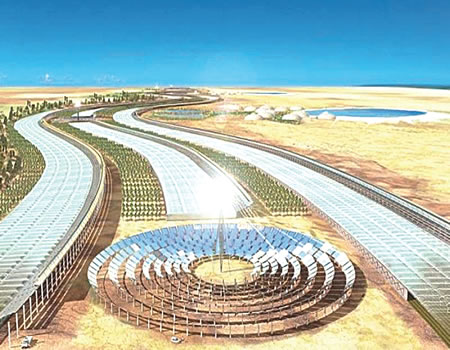Morocco is currently Africa’s leader in terms of efforts to combat climate change, reaffirming the country’s commitment to the Paris Agreement on climate action.
Morocco has installed one of the largest solar farms in the world near Ouarzazate, a city known as the gateway to the Sahara Desert, which has been providing electricity to approximately 650,000 people since its launch in 2016. It is further anticipated that Morocco will be able to export power supplies to Europe, as well as elsewhere on the African continent and the wider Arab-speaking world. According to the Climate Change Performance Index, the country is well on its way to achieving its nationally determined contributions (NDCs) in 2020.
This solar mega project weighed heavily in the results of the Climate Change Performance Index (CCPI), which is used to assess countries’ aggregated performance by considering 14 indicators within the four categories: greenhouse gas emissions, renewable energy, energy use and climate policy. The Climate Change Performance Index aims to enhance transparency in international climate politics and currently reports results for 56 individual countries as well as for the European Union, accounting for a total of nearly 90 per cent of global greenhouse gas emissions.
The Climate Change Performance Index is published annually by Germanwatch, the New Climate Institute and the Climate Action Network and reviewed by around 400 energy and climate experts from around the world.
Climate change scientists have expressed in myriad reports Africa’s vulnerability to global warming, and warned African governments about implementing development strategies that are primarily adaptation-focused. In this context, Morocco’s Climate Change Performance Index ranking reinforces the notion that indeed, economic development in the southern countries can also focus on a mitigation approach.






